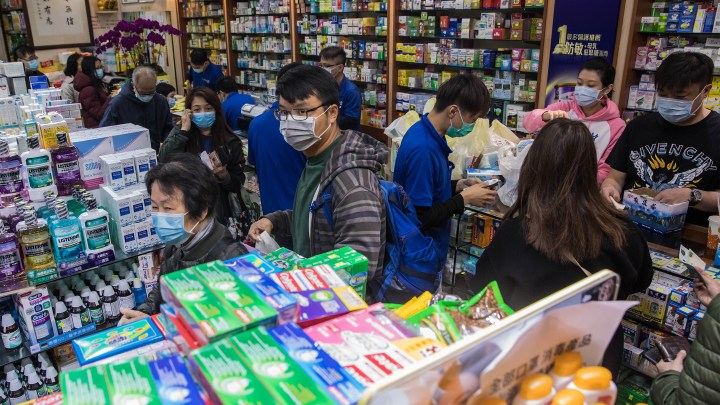
Prescription drug supply could be hit by COVID-19

The Centers for Disease Control and Prevention warned Americans Tuesday that it’s not a question of if the coronavirus starts spreading in the U.S., but a question of when.
So far, the CDC says there’s only been few confirmed cases of infection in this country — 53 to be exact. But the head of the National Center for Immunization and Respiratory Disease, Dr. Nancy Messonnier, said that Americans should be ready for a disruption of their daily lives because of this viral illness.
Pharmacist Meyer Davidoff at the New Jersey-based Invictus Pharmacy has been getting a lot of calls from patients lately.
“Of course, we do reassure them, tell them that everything’s fine as of now,” Davidoff said, adding that most of the calls are people asking about respirator masks and flu vaccines. But pharmacists are concerned that if the coronavirus outbreak continues it could start disrupting the drug supply chain, according to Doug Hoey, who runs the National Community Pharmacist Association.
“China controls the raw active ingredients for numerous antibiotics and other drugs,” Hoey said, as well as generic prescription drugs used to treat blood pressure and diabetes.
It’s difficult for pharmacies to predict which drugs could be affected, according to Nicolette Louissaint, the executive director of the nonprofit Healthcare Ready, which helps link pharmacists to drug suppliers. She’s been tracking drug supply chains amid the COVID-19 outbreak.
“For many products and many classes of products, the supply chain looks different,” Louissaint said. “It’s really hard to create a broad stroke assessment of the potential shortages or just challenges that patients may see.”
The FDA says it has asked drug manufacturers to let it know if they anticipate any disruptions because of the coronavirus. And it says companies haven’t reported any shortages yet. Ashish Jha, director of the Harvard Global Health Institute, said that’s because the supply chain has some built-in safeguards.
“For instance, if there’s a pharmaceutical company in India that’s manufacturing a drug, where they get the active ingredient for China, those pharmaceutical companies in India often will stockpile a lot of that active ingredient,” Jha said.
In the U.S., pharmacies have built-in safeguards as well.
“We always have at least two to three months of any chronic medication a patient might have,” Davidoff said, adding that if there is a shortage, pharmacists could work to help patients to find alternative drugs in the meantime.
There’s a lot happening in the world. Through it all, Marketplace is here for you.
You rely on Marketplace to break down the world’s events and tell you how it affects you in a fact-based, approachable way. We rely on your financial support to keep making that possible.
Your donation today powers the independent journalism that you rely on. For just $5/month, you can help sustain Marketplace so we can keep reporting on the things that matter to you.












